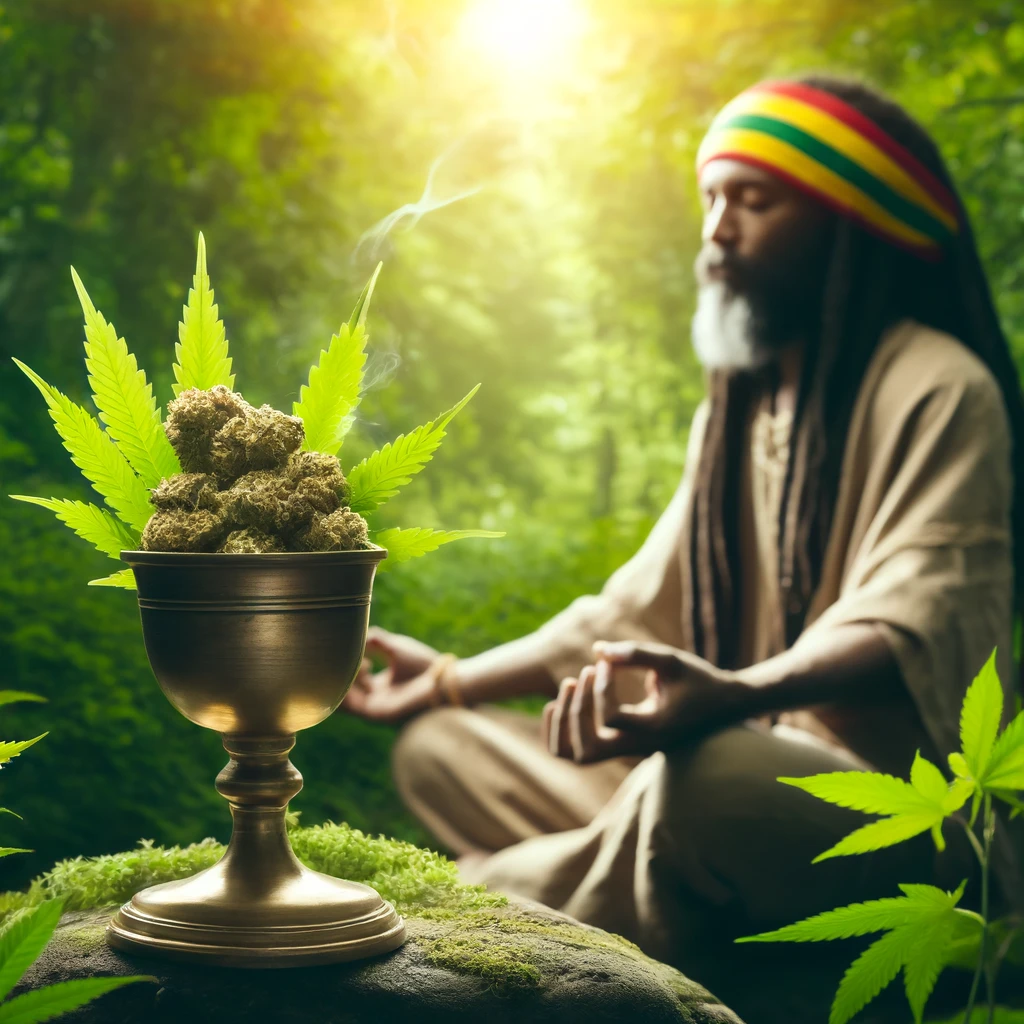Ganja, or cannabis, holds a central and sacred place in Rastafari culture. It’s not just a plant but a spiritual sacrament used for meditation, healing, and connecting with Jah (God).
1. Spiritual Significance
Rastafarians view ganja as a holy herb, often referred to as the “wisdom weed” or “the healing of the nation.” It is believed to open the mind, promote wisdom, and enhance spiritual awareness. The use of ganja is deeply rooted in biblical references, particularly from Psalms 104:14, which mentions, “He causeth the grass to grow for the cattle, and herb for the service of man.”
2. Ritual Use
Ganja is primarily used in a ceremonial context during “reasoning” sessions, where Rastafarians gather to discuss life, faith, and spirituality. During these sessions, the herb is smoked in a communal pipe or chalice, and its use is accompanied by prayers, chanting, and meditation. This ritual is seen as a way to bring the community closer together and connect with the divine.
3. Healing Properties
Beyond its spiritual significance, ganja is also valued for its medicinal properties. Rastafarians use it to treat various ailments, from physical pain to mental stress. Its natural healing abilities are celebrated and utilized as a form of holistic medicine, emphasizing a return to natural and traditional remedies.
4. Symbol of Resistance
Ganja also symbolizes resistance against oppression and colonialism. Its use was criminalized by colonial governments, but Rastafarians continued to use it as an act of defiance and a statement of their cultural and spiritual identity. This resistance highlights the broader struggle for autonomy, justice, and the right to practice their beliefs freely.
Closing Thoughts
Ganja is much more than a plant in Rastafari culture; it is a sacrament, a medicine, and a symbol of resistance. It embodies the connection to nature, the quest for spiritual enlightenment, and the fight for cultural and religious freedom.

